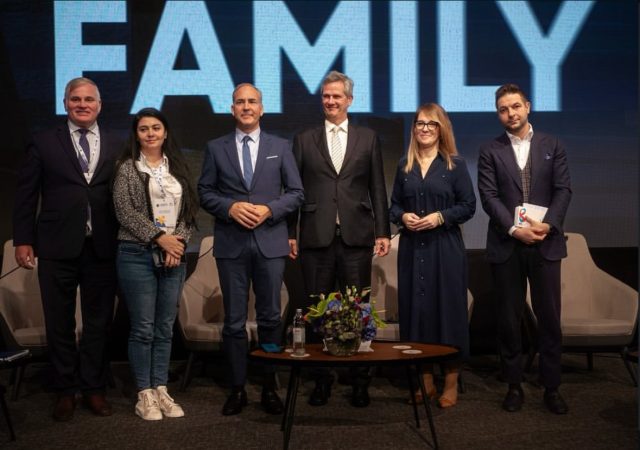
The two-day conference in Dubrovnik, organized by the ECR Party (European Conservatives and Reformists), focused on a crucial theme for the future of Europe: “Conservative Education for Modern Times: Reintegrating Optimistic Patriotism and Unbiased Excellence in European Education”. In an era where educational systems are increasingly influenced by progressive and globalist ideologies, it is essential to rethink how a conservative approach can restore education to its original role: forming citizens rooted in traditional values, proud of their country, and capable of contributing to their nations’ progress.
Patriotism, a central topic of the conference, was presented from a different perspective than in the past. There was discussion of optimistic patriotism, which is not limited to a nostalgic or closed sentiment but promotes a deep awareness of one’s historical and cultural roots. This kind of patriotism, in stark contrast to the cosmopolitanism often dominant in schools and universities, is seen as fundamental for instilling in young people a respect for their nation and an active commitment to society. Through education, future citizens should be encouraged to develop a strong sense of belonging, without falling into the traps of exclusive nationalism, but rather, looking at their country with pride and a constant desire for improvement.
Alongside patriotism, another focal point of the event was the theme of unbiased excellence. The idea that all citizens should have the same opportunities is an important principle, but it must be accompanied by the recognition and promotion of individual merit. Only through an educational system that fosters meritocracy, rewarding effort, talent, and dedication, can a strong and competitive society be built, capable of innovation and progress. Participants criticized the excessive emphasis placed today on equality, which, in practice, often risks leveling down and sacrificing individual talent in the name of a generalized flattening.
Education, in the context of the reflections in Dubrovnik, was seen as the primary vehicle for preserving and transmitting traditional values. It was emphasized how, historically, schools and universities had the task not only of imparting knowledge but also of shaping young people’s character and moral integrity. This educational function is now threatened by moral relativism, which undermines cultural identity and social cohesion. Conservative education, in contrast, must respond to these challenges by recovering respect for national roots and strengthening the sense of community.
Another crucial aspect that emerged during the event was the role of the family in the educational process. The family, as the central unit of society, is the first institution responsible for transmitting values. In this view, it is essential that educational systems do not conflict with the upbringing provided within the family, but rather, reinforce it. Participants shared the idea that family policies should be oriented towards supporting parents in their educational role, rather than trying to replace it, as often happens in modern progressive social policies. The protection of the family and its values is seen as a non-negotiable priority for any conservative educational project.
The discussions also highlighted the delicate balance between national identity and European belonging. While it is undeniable that Europe faces many common challenges, education must remain a prerogative of the nation-states. Each country has the right and duty to transmit to its citizens the values and traditions that characterize it, without these being diluted by centralized and uniform educational policies promoted by the European Union. An appeal was made for educational sovereignty as a tool to protect the cultural richness and diversity that make Europe a unique continent.
Finally, emphasis was placed on the importance of actively involving local communities in the educational process. Schools must reflect the values and peculiarities of the communities in which they operate, ensuring that young people are rooted not only in national culture but also in local culture. In this way, education becomes a tool to strengthen social bonds and promote cohesion within communities, in opposition to the anonymity and fragmentation that often characterize modern society.
The Dubrovnik event provided a deep and structured reflection on the challenges and opportunities Europe faces in the educational field. Patriotism, excellence, family, and community were identified as the fundamental pillars on which to base a conservative educational system capable of responding to the challenges of our time. Only through education rooted in traditional values can we form conscious, responsible citizens ready to contribute to the welfare and progress of their nations.
We would like to express our sincere gratitude to the speakers who gave their valuable contributions to the debate: Brian Brown, President of the International Organization for the Family, USA; Stephen Bartulica, Member of the European Parliament and scholar of political philosophy and ethics, Croatia; Attila Beneda, Deputy State Secretary for Family Policy, Hungary; Patryk Jaki, Member of the European Parliament, Poland; Petra Mandic, Board Member of Most Party and President of Local Councillors, Croatia; and Georgiana Teodorescu, Member of the European Parliament, Romania. Thanks to them, the debate was rich in ideas and proposals that will undoubtedly have a positive influence on the future of conservative educational policies in Europe.



 Subscribe
Subscribe